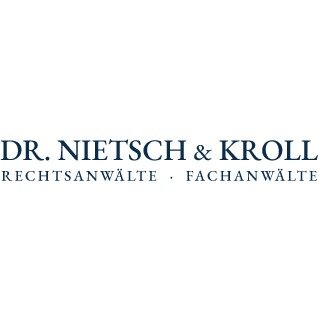Best Private Client Lawyers in Hamburg
Share your needs with us, get contacted by law firms.
Free. Takes 2 min.
List of the best lawyers in Hamburg, Germany
About Private Client Law in Hamburg, Germany
Private Client law in Hamburg, Germany encompasses a broad range of legal services aimed at individuals, families, and business owners dealing with personal legal matters. This area of law typically involves estate planning, succession, wills, trusts, asset management, tax planning, and family law. As one of Germany's most dynamic cities, Hamburg boasts a robust legal framework tailored to assist both residents and non-residents with managing and protecting their wealth, navigating international concerns, and ensuring compliance with German regulations. Private Client lawyers in Hamburg offer specialized advice to address the often complex and sensitive nature of personal financial and family matters.
Why You May Need a Lawyer
There are many situations where consulting a Private Client lawyer in Hamburg can be crucial. Common scenarios include:
- Drafting or updating a will to ensure your assets are distributed according to your wishes
- Probate and administration of estates after a family member's death
- Setting up and managing trusts or foundations
- Structuring your assets and gifts to minimize inheritance and gift tax liability
- Planning or contesting inheritances, especially in blended or international families
- Transferring property or businesses between family members
- Addressing complex family law issues, such as prenuptial agreements or divorce settlements involving significant assets
- Handling cross-border legal issues for non-residents or expatriates with property or family in Hamburg
- Supporting incapacitated family members, including guardianship and representation
- Resolving disputes among heirs or beneficiaries
Engaging a lawyer ensures these matters comply with local, national, and--when relevant--international law, protecting your interests and those of your loved ones.
Local Laws Overview
Hamburg, as a city-state within Germany, follows federal German law for Private Client matters, with some local administrative aspects. Key areas of interest include:
- Inheritance Law (Erbrecht): The German Civil Code (Bürgerliches Gesetzbuch or BGB) sets comprehensive rules for intestate succession, forced heirship rights, and testamentary freedom. Certain close relatives (such as children and spouses) are entitled to mandatory shares, even if excluded from a will.
- Probate Procedures: The Nachlassgericht, or probate court, in Hamburg is responsible for overseeing estate administration, validating wills, and appointing executors if necessary.
- Gift and Inheritance Tax (Erbschaftssteuer & Schenkungssteuer): Tax rates depend on the relationship to the deceased or donor and the value of the inheritance or gift. Exemptions and allowances apply, but planning is often required to minimize taxation.
- Trusts and Foundations: Although traditional common law trusts are not recognized in Germany, foundations (Stiftungen) may serve similar purposes for asset management and philanthropy, subject to specific legal requirements.
- Family Law: Marital property regimes, divorce, and child custody are regulated under German law. These can significantly affect succession and inheritance matters.
- International Aspects: For residents with international ties, EU and international treaties often determine which country's law applies to succession, taxation, or asset distribution.
Given these complexities, tailored legal advice is critical, particularly when cross-border elements are present.
Frequently Asked Questions
What documents are needed to create a valid German will?
A will in Germany must be written (either handwritten and signed, or notarized) by the testator. It should clearly state the testator's wishes regarding the distribution of assets. Witnesses are not required for handwritten wills, but using a notary is common for complex estates.
How does forced heirship work in Hamburg?
German law mandates that certain close relatives (spouses, children, and in some cases parents) are entitled to a compulsory portion of the estate, regardless of the will's contents. This share is typically half of what the person would receive under intestate succession rules.
Is inheritance tax high in Germany?
Inheritance tax rates vary by relationship and amount inherited. Spouses and children benefit from larger tax-free allowances, while distant relatives and unrelated heirs pay higher rates and have lower exemptions.
Can foreigners inherit property in Hamburg?
Yes, foreigners can inherit property in Hamburg. However, tax liabilities and legal procedures may differ or become more complex for non-residents or those subject to other jurisdictions.
What happens if someone dies without a will in Hamburg?
If there is no will, the estate is distributed according to German intestacy laws, favoring closest relatives such as spouses, children, parents, and siblings. The process is overseen by the local probate court.
Is it possible to set up a trust in Germany?
Traditional trusts as known in common law do not exist in Germany, but you can establish foundations (Stiftungen) for asset management or charitable purposes, subject to strict legal requirements.
How do international assets affect inheritance in Hamburg?
If assets are held in different countries, complex legal and tax issues may arise. The EU Succession Regulation may apply for EU residents, but advice is necessary to navigate conflicts of law and minimize taxes.
What is the role of the Nachlassgericht?
The Nachlassgericht, or probate court, manages inheritance proceedings, validates wills, issues certificates of inheritance, and resolves disputes among heirs.
How can disputes among heirs be resolved?
Disputes can be resolved by mediation or through litigation in the local courts. In many cases, legal counsel is essential to negotiate settlements or represent heirs in court.
How can assets be protected for future generations?
Effective asset protection may involve structuring gifts, using family companies, setting up foundations, or drafting ironclad wills. Early planning with a specialist lawyer helps minimize risks and taxation.
Additional Resources
- Hamburg Chamber of Lawyers (Hamburgische Rechtsanwaltskammer) - Provides directories of qualified lawyers in Private Client law
- Hamburg Notarial Association (Hamburgische Notarkammer) - Information about notarization, wills, and estate administration
- German Federal Chamber of Notaries (Bundesnotarkammer) - Nationwide notary information and public advice
- Hamburg Probate Court (Nachlassgericht Hamburg) - Handles estate administration and disputes
- Federal Ministry of Justice (Bundesministerium der Justiz) - Official information on inheritance law, family law, and taxation
- Local consumer advice centers (Verbraucherzentrale Hamburg) - Guidance and information on legal rights and processes
Next Steps
If you need legal assistance in Private Client matters in Hamburg:
- Gather all relevant documents, including wills, asset lists, family records, and property deeds
- Consider your objectives, such as asset protection or conflict resolution
- Contact a lawyer who specializes in Private Client law in Hamburg for an initial consultation
- Prepare key questions and discuss potential fees and timelines with your lawyer
- For international matters, seek a lawyer experienced in cross-border law and tax planning
- Stay proactive - early legal advice can prevent complications and secure your interests for the future
Engaging a qualified professional is the safest way to navigate Hamburg's complex Private Client legal landscape and ensure your affairs are in order according to your wishes and local law.
Lawzana helps you find the best lawyers and law firms in Hamburg through a curated and pre-screened list of qualified legal professionals. Our platform offers rankings and detailed profiles of attorneys and law firms, allowing you to compare based on practice areas, including Private Client, experience, and client feedback.
Each profile includes a description of the firm's areas of practice, client reviews, team members and partners, year of establishment, spoken languages, office locations, contact information, social media presence, and any published articles or resources. Most firms on our platform speak English and are experienced in both local and international legal matters.
Get a quote from top-rated law firms in Hamburg, Germany — quickly, securely, and without unnecessary hassle.
Disclaimer:
The information provided on this page is for general informational purposes only and does not constitute legal advice. While we strive to ensure the accuracy and relevance of the content, legal information may change over time, and interpretations of the law can vary. You should always consult with a qualified legal professional for advice specific to your situation.
We disclaim all liability for actions taken or not taken based on the content of this page. If you believe any information is incorrect or outdated, please contact us, and we will review and update it where appropriate.
Browse private client law firms by service in Hamburg, Germany
Hamburg, Germany Attorneys in related practice areas.












